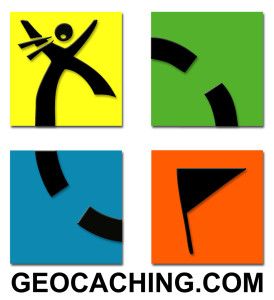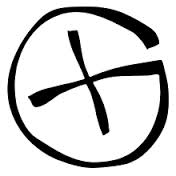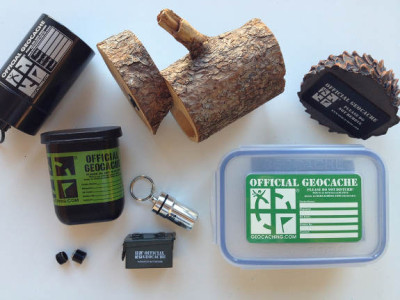International Geocaching Day is today—the third Saturday of every August—and this year I wanted to celebrate the event with a look at the history of Geocaching. It isn’t as old as you might think and was created here in the U.S. But first, we’ll have to take a moment to look at why this modern-day treasure hunt is even possible.
GPS Selective Availability Ends
When GPS was developed by the U.S. Department of Defense and deployed in 1995, it was originally intended for military use. Because of this, the civilian sector only could receive scrambled signals, known as Selective Availability. What this meant was the signals that non military personnel could pick up were only accurate to within 100 meters–not enough to accurately use for, well, anything.
Then President Clinton made the announcement that the Selective Availability would end and on May 2, 2000 just after midnight, GPS signals were unscrambled and accuracy improved tenfold. It literally happened overnight and the tech community (and GPS enthusiast community, of course) was abuzz with all the new opportunities possible with President Clinton’s decision.
Birth of Geocaching Hobby
On May 3, 2000 a GPS enthusiast named Dave Ulmer decided to test out the accuracy of the new non-scrambled GPS signals by hiding an object in the woods outside of Portland and posting its coordinates online. It was just a black bucket with various items including videos, books, software, a logbook and a slingshot. He posted the coordinates: N 45° 17.460 W 122° 24.800 in the online community sci.geo.satellite-nav with the simple instructions that the finder was to, “Take some stuff, leave some stuff.” And so a hobby was born.
Within a few days, several people has visited Ulmer’s bucket and logged the first finds. Then soon, people were hiding their own containers with logs and trinkets around the country and even the world. Ulmer referred to the idea as the “Great American GPS Stash Hunt” which was later shortened to “GPS Stash Hunt” as it gained popularity and media attention.
On May 8, Mike Teague launched a website for collecting the locations of caches (then referred to as GPS stashes) so that users could easily access all of the locations and coordinates. While the original site is no longer active, a copy of the site can be viewed here. A week after the original bucket was hidden, James Coburn set up a mailing list on eGroups (which later became Yahoo! Groups) to discuss the newly formed hobby and form many of the rules and accepted practices. The group is actually still around, fourteen years later, and its archives have lots of history of the hobby. If you are interested in browsing through it, you can take a look here.
The hobby gained a lot of media attention and interest around the world and future geocachers were often dismayed to find that there were not caches in their areas. The pioneers of the hobby encouraged new caches to be hidden and helped newbies with the then-complicated GPS technology. “If you hide it, they will come,” was the mantra. And they did.
Looking through the archives and history of the hobby, you’ll see that the now accepted name of “geocaching” wasn’t suggested until the end of May. Geocacher Matt Stum suggested the name change to avoid the negative connotations associated with the word ‘stash.’ The name was created from the word “Geo” which is Earth and relates to the nature based part of the hobby and “cache” which has a number of meanings, but usually has something to do with a hiding spot or treasure. You probably also recognize it as a computer term, which makes it doubly appropriate for the hobby’s technology base.
 Geocaching.com Homepage
Geocaching.com Homepage
The Geocaching.com site is the most used and oldest of the functioning geocaching websites. It also boasts the biggest database of caches.
Originally created by Jeremy Irish in September 2000, the site was clean and well-organized and easy to maneuver through compared to the original site. He took over the original list created by Mike Teague a week after launch, and had a grand total of 75 caches listed. Since then, the site has grown into quite a hub with an online store selling merchandise, a paid portion of the site and more than 9 million users registered. It is, without a doubt, the largest and currently the oldest geocaching site still running.
A Worldwide Hobby
Now, fourteen years after its creation, geocaching has become quite the international hobby with more than 2.4 million active geocaches waiting to be found around the world. No matter what part of the world or what country you are in, there is probably a geocache only a short drive away just waiting to be found.
There are several different geocaching websites for geocachers to choose from in every language. The simple game has expanded to include many different aspects like travel bugs–small objects with travel dreams and goals—and different types of caches like puzzle or mystery caches.
Geocaching Events
Geocaching events are held most weekends throughout the world, and especially today. The world’s first Giga event is being held today at the former Olympic stadium in Munich. For more information or to take part in this historic event, go here. The Groundspeak offices are also organizing a Block Party this weekend with lots of fun and games, so be sure to stop by if you’re in the Seattle area! There are probably events today in your area, so hop online and check them out, then go and meet some geocachers in your area or invite a friend to introduce them to the hobby. And most of all, happy hunting!


